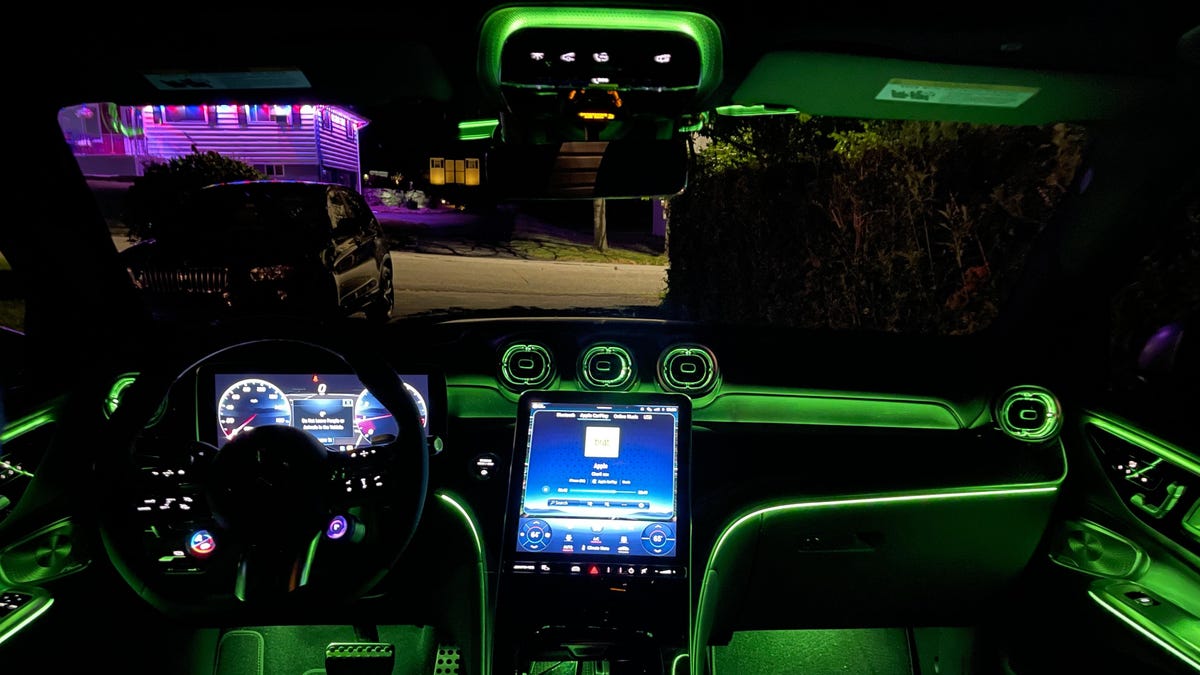It turns out that more technology in cars isn’t necessarily something customers want, and it’s not really improving their driving experience. We know my thoughts on the matter, but I’ll do my best to stay impartial on this latest survey from JD Power that shows most customers don’t appreciate technology in cars unless they can see a clear benefit to them.
JD Power’s 2024 U.S. Tech Experience Index Study evaluated over 81,000 drivers’ experience with “advanced vehicle technologies” in 2024 model year vehicles after 90 days of ownership, It turned out to be a pretty mixed bag when it came to what people liked using. There are a number of tech features that customers like using because they feels that it answers their needs, but at the same time there is a whole lot that don’t get used very often or are continually annoying, according to the survey.
…



Actually that’s one arena of technology that should have taken a different course. Auto manufacturers should have an upgradable modem module that you can swap out with the latest “G” (as the modules are already self-contained) and the car should have antennae that cover as wide swath of the RF spectrum as possible. Cars are Faraday Cages. Cellular reception on a tiny little rectangle phone in your center console won’t ever be as good as a dedicated modem and antenna. Also, the car’s dedicated modem can transmit at higher power levels (up to 3 watts, vs a couple hundred milliwatts) so you’ll get cellular reception in places your phone will just say no service. It also moves the higher-powered RF outside the car with the Faraday Cage shielding the human, for those that are concerned about such things. (Also, also, phones have to limit their total RF output to the sum of the current transmission rate of the radios, so when you’re doing Bluetooth + cellular, the cellular modem won’t be allowed to transmit at its maximum power level, further reducing range.)
Bonus points, there has literally been a Bluetooth SIM profile in existence for decades, although very few car modem have ever been designed to support it. This means, if this was implemented as standard, when the phone pairs with the car, the car inherits the cellular account of the phone while the car is turned on. So you’re not paying for two cell bills, you get better reception, same phone number, better data speeds, better voice calling, etc. The phone also has supremely better battery life because it doesn’t have to be constantly screaming at cell towers.
Of course, automakers and cell carriers would never implement these things that already exist because they’d eat into their precious profit margins.
Personally, I don’t want my car to have any connectivity options because car makers have already proven they are just going to abuse it to sell your data.
At most, they’re very bad Faraday cages.
The vast majority of LTE bands are below 2600mhz, around 10 cm wavelength, which usually doesn’t have any issue penetrating glass, and suffers very little degradation from the metal in the body of the car.
Aluminum materials, which are not uncommon for body panels, and other automotive components due to its light weight and relatively low cost, is non-ferrous and won’t impact signal strength any more than glass will…
The Iron/steel in the vehicle, usually in the frame/engine, are the primary issues with regards to signal blocking. That’s what microwaves make their Faraday cage from for good reason.
Many wireless providers also have sub 1ghz channels which are harder to block, they’re generally slower for bandwidth, but that’s another matter entirely.
Most of the dashboard is made of plastics and other non-ferrous materials, but it’s littered with devices, supports, and wires that can impact signal integrity. These are usually fairly sparce and don’t generate a lot of interference. Since the dashboard is directly adjacent to the windshield and driver/passenger windows, signal is more or less unimpeded in the desirable directions (horizontal, mainly). Unless you’re putting your phone on the floor of your vehicle, you’re generally okay for signal, as it passes through the majority of the dashboard, around components in the dashboard, and through the glass relatively unimpeded.
The exception to this is that some manufacturers seem to think it’s a good idea to put materials in their safety glass that impede RF. God knows why. It might be a biproduct of a coating that is there for a different reason, but it’s not great. That’s when you need a fairly simple LTE repeater.
Which brings me to my point. You can forego the complex and unsupported LTE SIM over Bluetooth stuff by simply putting a relatively low power LTE repeater from a good signal location, such as the roof of the vehicle, to a bad signal location, such as the middle of the cabin it can literally be built into the overhead cabin light. Resolving the issues you’ve stated, without providing any data access to the vehicle itself. Such an add-on would be a small increase in cost, as such units can retail anywhere from a few hundred to thousands of dollars, but as that cost would replace the built in modem most people never wanted to begin with, the addition may actually make the whole car cheaper… With little more than Apple carplay/Android auto, to replace all the functionality they’ll lose by removing the cars data connection.
It’s a very silly and pointless argument overall, because vehicle manufacturers will not be removing the LTE modems from their vehicles, since that allows them to remotely gather your data, which they can sell. That increases profits and that’s what they care about. So they’re never going to listen to us regardless… As long as someone is buying their wiretap vehicles and basically handing them free money in the form of your personal data, they’re going to keep doing it.